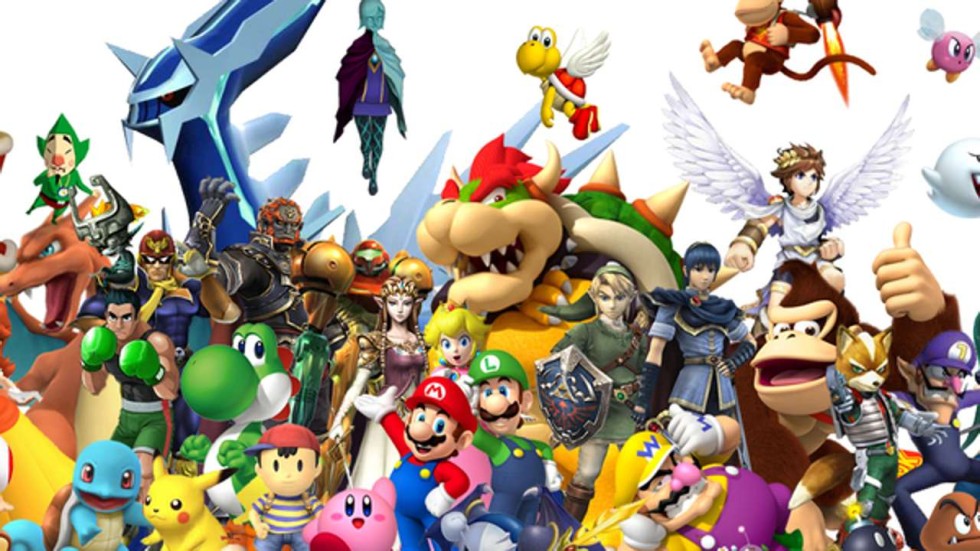10 Most Expensive TV Flops of All Time
Since its early days, television has been a great battle arena for creative individuals. Although the barriers to entry in television are extremely high, the platform has enabled a lot of people to make a lot of money. While there is no question that there is some serious cash in television, it doesn’t come without its risks.
Every time that a new TV show gets the green light, the network takes a huge (read: multi-million) gamble. Every new idea requires millions of dollars to execute – and there is no guarantee that the show will break even, yet alone make a profit. It’s vital for every greenlit show to first attract a loyal audience, then keep them coming back week after week.
For every success story in television, there is a story of gigantic failures. While yeah, sometimes super high production budgets will pay off – like in the case of uber successful Lost and the more recent (yet highly regarded) Game of Thrones. But many times TV shows fail, regardless of the amount of cash stuffed into them. Below is a list of ten such high-budget failures that go to show that expensive pilots don’t automatically translate to high rankings and ten-fold revenues.
Terra Nova (2011)
The two-hour pilot with a budget nearing that of Hollywood featured over 250 sets and had a scene with over 400 extras. It’s reported that the 250 sets took nearly four months to build.
The show was being filmed in Queensland, where the weather was absolutely disastrous. A flash flood almost killed a security guard who was trying to save a generator. And the seemingly neverending rain formed a river around the camp forcing producers and actors to trudge through knee-deep mud to get to the set.
This failure has cost Fox an estimated $50 million, not accounting for marketing costs. And since Terra Nova didn’t perform as well as Fox has hoped, the show was cancelled after one thirteen episode season. Ouch.
Supertrain (1979)
As a refresher for those not around in the ‘70s, or for everyone that has forgotten about its existence – let’s take a look at what the show was about. In short, it was about a super train. A train that was powered by nuclear energy and shot between New York City and Los Angeles. Sounds exhilarating, doesn’t’ it?
Since the beginning, Supertrain has experienced many costly “difficulties. For example, a model set that cost around $3 million crashed during its first demonstration. Due to the catastrophic difficulties associated with the startup of the show, and the impressively low rankings and poor reviews the show was cancelled after only nine episodes.
Battlestar Galactica (1978-1979)
Although Glen Larson conceived the outer space adventure back in the ‘60s, it didn’t go anywhere until the eruption of Star Wars in 1977. With Star Wars’ huge box office success, science fiction finally got the recognition it deserved. ABC decided to capitalize on the new obsession and took a gamble with the high-budget production of BSG. Unfortunately, their efforts quickly failed.
In 2004, Battlestar Galactica was rebooted as one of the highest regarded sci-fi shows of all time. Unfortunately, the original conception of BSG in 1978 was mediocre (despite its very strong start) and ABC decided not to renew for the second season.
The Bionic Woman (2007)
The declining popularity, along with some bad luck led to a quick end of The Bionic Woman. After only a few episodes aired back in 2007, the WGA strike hit – forcing production to halt. Unfortunately, after the strike was over, the excitement for the TV show has died down and filming was never resumed. Shortly it was announced that the series was cancelled (after only 8 episodes) due to low rankings.
Kings (2009)
Since this is the third time that NBC landed on our list of television failures it might be safe to say that the network is very liberal with their green lights. In this case, NBC failed to see that the premise behind Kings was rather weak and had no problem of pouring money into its production. The two-hour pilot had reportedly cost the network upwards of $10 million and recurring per-episode costs of an estimated $4 million.
After the debut of Kings in 2009, the show received mixed reviews. While the show did have some fans, the rankings were remarkably low. Due to the poor rankings the show was on a downward spiral to becoming mothballed. After only a few episodes, the show was cancelled, and the remaining episodes were offloaded to the summer season.
Camelot (2011)
While it’s uncertain how much the incredibly extravagant pilot of Camelot cost the network, each subsequent episode was reported to have a budget of $7 million. Despite the deep pockets of Starz, Camelot failed to reach its full potential and production halted. The official reason for cancellation, as provided by Starz, was attributed to “significant production challenges,” whatever on earth that means. It is likely, however, that these difficulties include scheduling interferences with the show’s high-profile stars.
Flashforward (2009-2010)
Co-creator David Goyer can be quoted saying that ABC was “very good about opening up the piggy bank”. Generally this translates to great news for a TV executive, but in the case of Flashforward even a liberal piggy bank count save the show from its ultimate failure.
The ridiculously expensive show shared a story of a special task force in the FBI what investigated why every person on Earth has simultaneously blacked out and awoke with a short vision of their future. While the sci-fi concept sounds quite interesting, the ratings were plummeting. For this reason, ABC cancelled the show after only one season.
The Fugitive (2000)
The pilot cost NBC an estimated $6 million, with a per-episode budget of nearly $4 million. Casting Tim Daly – a guy known best for his role in the mediocre TV show Wings – as the lead, NBC was on the way to losing some serious coin. The rankings and reviews for The Fugitive were quite unimpressive. In fact, the only impressive thing about the whole disaster was the fact that the show has made it through 22 episodes before getting the axe.
Father of the Pride (2004)
As far as costs go, it’s estimated that a single episode of the adult animation cost around $1.6 million and 9 months to make. With NBC being what it is, it comes as no surprise that a show about Siegfried and Roy and talking animals would be programmed during some of the most prime sports during the 2004 summer Olympics. While the show did eventually get a little better, it still wasn’t quite enough and it was cancelled after just 14 episodes.
Manimal (1983)
Although in theory Manimal could turn into any animal, due to the low level of tech, Dr. Chase often turned into either a hawk or black panther, and the transformation always took place with the same backdrop each time – likely to save the network some money. Despite the budgetary nature of the show, Manimal still managed to clock in as one of the most expensive TV shows of all time. Unfortunately, something still lacked in the production of Manimal and the show was cancelled after only eight episodes.
Conclusion
The list above should be enough to convince any network that there is more to creating a great TV show than money. Combined, this list contains hundreds of millions worth of television failures, but without a doubt NBC or the like will green light another high-concept (and, of course, high budget) tv show that will inevitably lose them some serious coin.
On the other hand, however, are the many successful TV shows that make it to our living room screens that make up for such failures. With modern programming, it’s also evident that networks are slowly but surely learning what their audiences are interested in, and as a result television shows are becoming much better.
Unfortunately (or maybe fortunately), cable television is on a decline and new players like Netflix and Hulu are taking over. Netflix, for example, has the unique ability to monitor their users habits, and from the collected data they can extrapolate what makes a great TV show. Thanks to this data we as viewers can look forward to much higher quality of televised content. Better TV benefits everyone, from networks, making more money to viewers having a better experience, higher quality programming is a win-win.
Supertrain (1979)
As a refresher for those not around in the ‘70s, or for everyone that has forgotten about its existence – let’s take a look at what the show was about. In short, it was about a super train. A train that was powered by nuclear energy and shot between New York City and Los Angeles. Sounds exhilarating, doesn’t’ it?
Since the beginning, Supertrain has experienced many costly “difficulties. For example, a model set that cost around $3 million crashed during its first demonstration. Due to the catastrophic difficulties associated with the startup of the show, and the impressively low rankings and poor reviews the show was cancelled after only nine episodes.
Battlestar Galactica (1978-1979)
Although Glen Larson conceived the outer space adventure back in the ‘60s, it didn’t go anywhere until the eruption of Star Wars in 1977. With Star Wars’ huge box office success, science fiction finally got the recognition it deserved. ABC decided to capitalize on the new obsession and took a gamble with the high-budget production of BSG. Unfortunately, their efforts quickly failed.
In 2004, Battlestar Galactica was rebooted as one of the highest regarded sci-fi shows of all time. Unfortunately, the original conception of BSG in 1978 was mediocre (despite its very strong start) and ABC decided not to renew for the second season.
The Bionic Woman (2007)
The declining popularity, along with some bad luck led to a quick end of The Bionic Woman. After only a few episodes aired back in 2007, the WGA strike hit – forcing production to halt. Unfortunately, after the strike was over, the excitement for the TV show has died down and filming was never resumed. Shortly it was announced that the series was cancelled (after only 8 episodes) due to low rankings.
Kings (2009)
Since this is the third time that NBC landed on our list of television failures it might be safe to say that the network is very liberal with their green lights. In this case, NBC failed to see that the premise behind Kings was rather weak and had no problem of pouring money into its production. The two-hour pilot had reportedly cost the network upwards of $10 million and recurring per-episode costs of an estimated $4 million.
After the debut of Kings in 2009, the show received mixed reviews. While the show did have some fans, the rankings were remarkably low. Due to the poor rankings the show was on a downward spiral to becoming mothballed. After only a few episodes, the show was cancelled, and the remaining episodes were offloaded to the summer season.
Camelot (2011)
While it’s uncertain how much the incredibly extravagant pilot of Camelot cost the network, each subsequent episode was reported to have a budget of $7 million. Despite the deep pockets of Starz, Camelot failed to reach its full potential and production halted. The official reason for cancellation, as provided by Starz, was attributed to “significant production challenges,” whatever on earth that means. It is likely, however, that these difficulties include scheduling interferences with the show’s high-profile stars.
Flashforward (2009-2010)
Co-creator David Goyer can be quoted saying that ABC was “very good about opening up the piggy bank”. Generally this translates to great news for a TV executive, but in the case of Flashforward even a liberal piggy bank count save the show from its ultimate failure.
The ridiculously expensive show shared a story of a special task force in the FBI what investigated why every person on Earth has simultaneously blacked out and awoke with a short vision of their future. While the sci-fi concept sounds quite interesting, the ratings were plummeting. For this reason, ABC cancelled the show after only one season.
The Fugitive (2000)
The pilot cost NBC an estimated $6 million, with a per-episode budget of nearly $4 million. Casting Tim Daly – a guy known best for his role in the mediocre TV show Wings – as the lead, NBC was on the way to losing some serious coin. The rankings and reviews for The Fugitive were quite unimpressive. In fact, the only impressive thing about the whole disaster was the fact that the show has made it through 22 episodes before getting the axe.
Father of the Pride (2004)
As far as costs go, it’s estimated that a single episode of the adult animation cost around $1.6 million and 9 months to make. With NBC being what it is, it comes as no surprise that a show about Siegfried and Roy and talking animals would be programmed during some of the most prime sports during the 2004 summer Olympics. While the show did eventually get a little better, it still wasn’t quite enough and it was cancelled after just 14 episodes.
Manimal (1983)
Although in theory Manimal could turn into any animal, due to the low level of tech, Dr. Chase often turned into either a hawk or black panther, and the transformation always took place with the same backdrop each time – likely to save the network some money. Despite the budgetary nature of the show, Manimal still managed to clock in as one of the most expensive TV shows of all time. Unfortunately, something still lacked in the production of Manimal and the show was cancelled after only eight episodes.
Conclusion
The list above should be enough to convince any network that there is more to creating a great TV show than money. Combined, this list contains hundreds of millions worth of television failures, but without a doubt NBC or the like will green light another high-concept (and, of course, high budget) tv show that will inevitably lose them some serious coin.
On the other hand, however, are the many successful TV shows that make it to our living room screens that make up for such failures. With modern programming, it’s also evident that networks are slowly but surely learning what their audiences are interested in, and as a result television shows are becoming much better.
Unfortunately (or maybe fortunately), cable television is on a decline and new players like Netflix and Hulu are taking over. Netflix, for example, has the unique ability to monitor their users habits, and from the collected data they can extrapolate what makes a great TV show. Thanks to this data we as viewers can look forward to much higher quality of televised content. Better TV benefits everyone, from networks, making more money to viewers having a better experience, higher quality programming is a win-win.














No comments:
Post a Comment